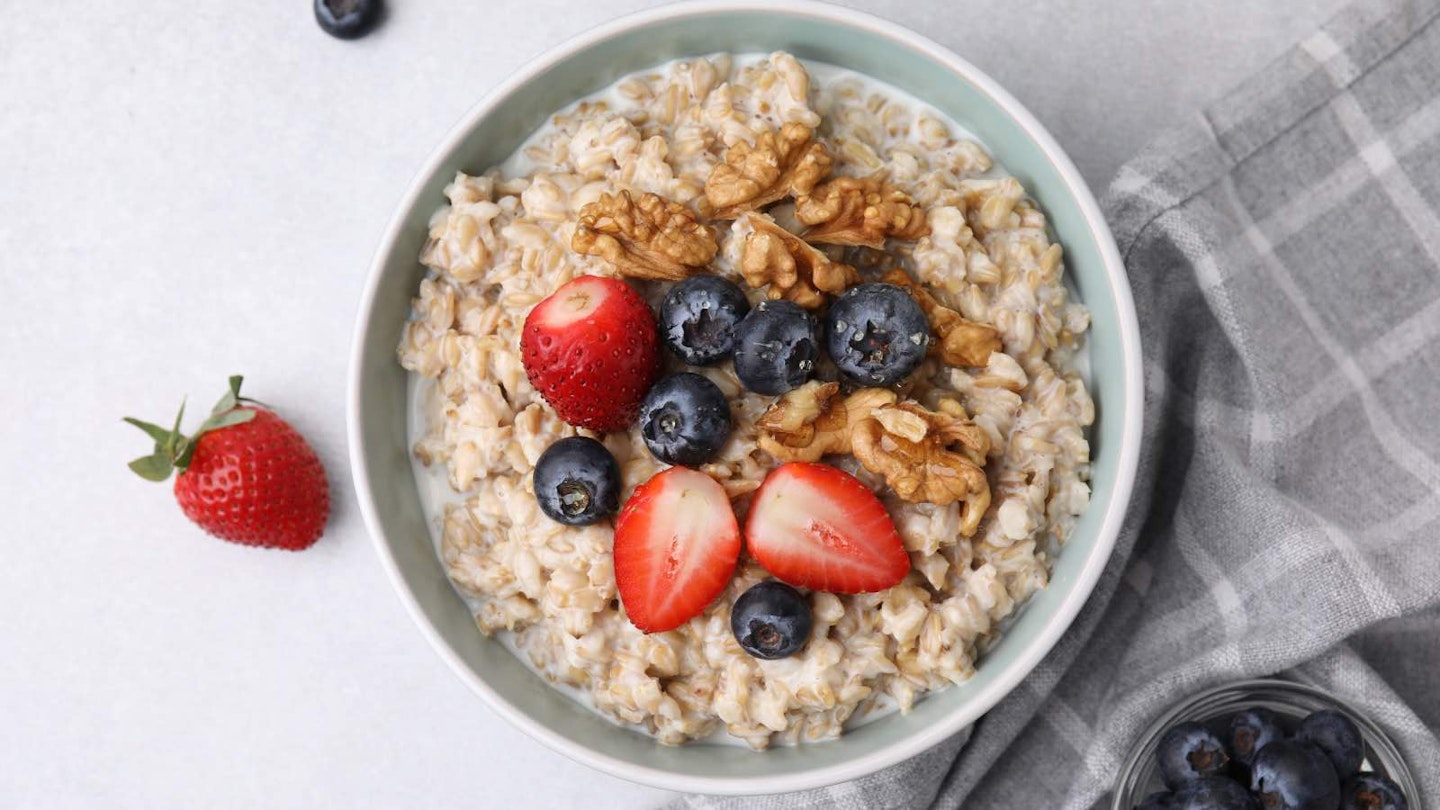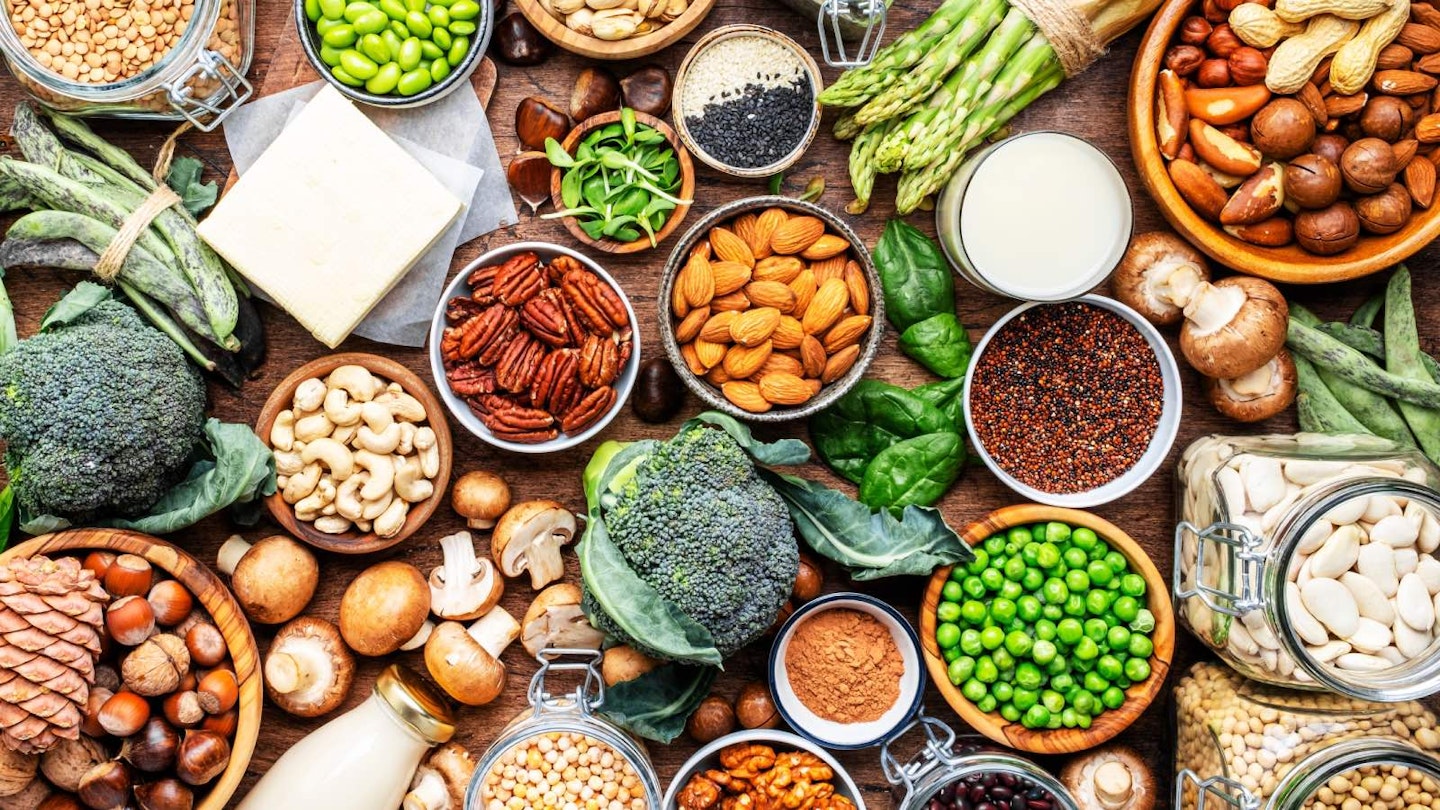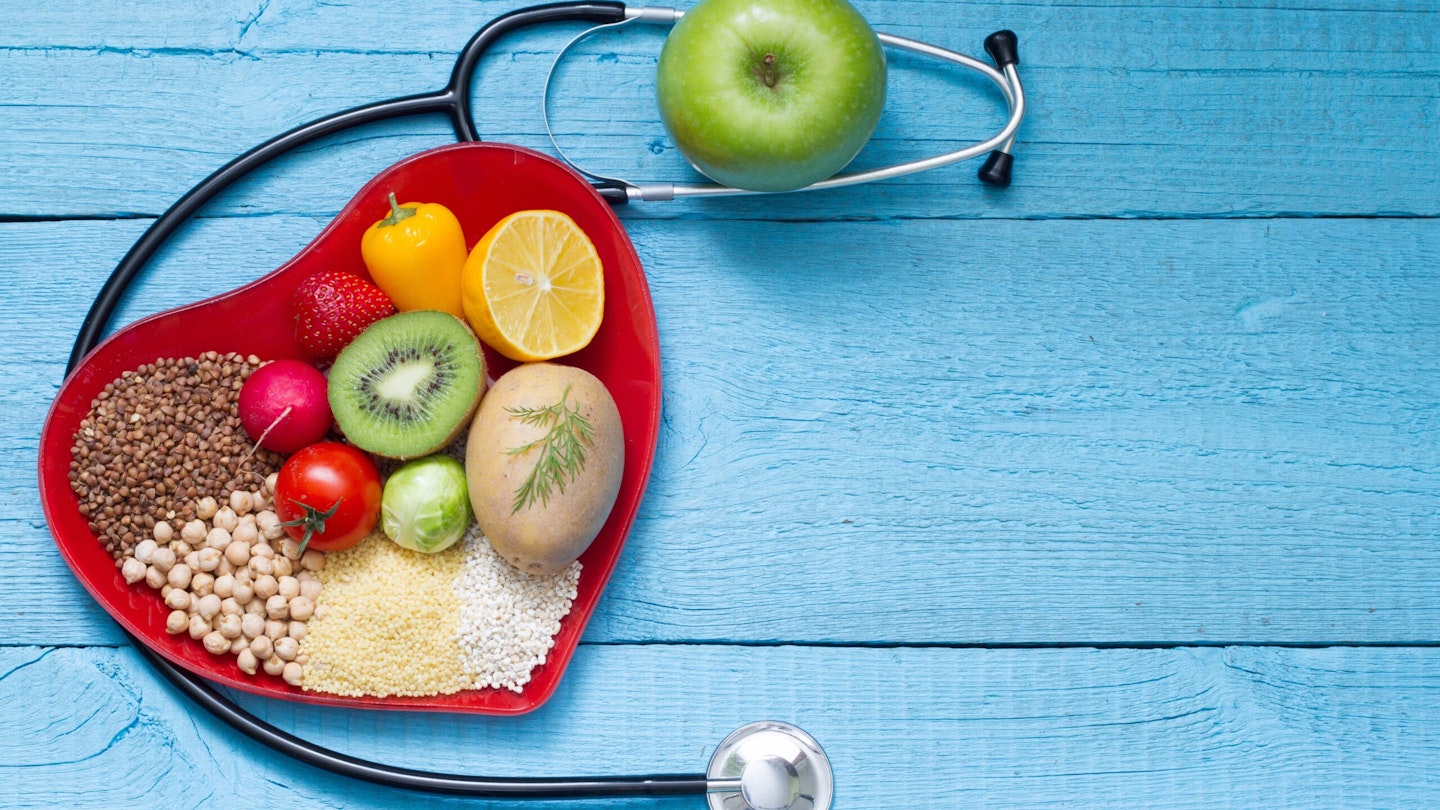High cholesterol is one of those health concerns that creeps up quietly, and often the first you know about it is when routine blood test highlights it as an issue. It’s common to feel ashamed or embarrassed in admitting to it. After all, it’s tantamount to saying ‘I haven’t been looking after myself,’ but in fact, high cholesterol can happen to anyone for many different reasons, and it affects roughly two thirds of the UK population over 50.
One person who has discovered they have high cholesterol is Rob Hobson, registered nutritionist and author of Unprocess Your Life. He regularly appears on ITV’s This Morning to discuss health issues and now he’s sharing his top tips with us for how to reduce cholesterol naturally in 3 months.
The good news is that there’s a lot you can do, without turning your life upside down, to get things back on track. The even better news is that these changes often benefit more than just your cholesterol. They help keep your heart healthy, could prevent stroke, help you lose weight, and they’ll boost your energy and mood.
What causes high cholesterol?
As I said, there’s many different factors that can contribute to high cholesterol. You might have more than one factor, it might be a lifestyle issue or a genetic predisposition. Here’s just a few possible causes:
Lifestyle issues: Factors such as obesity, smoking and excessive alcohol consumption can drive cholesterol levels up.
Unhealthy diet: A diet that is high in saturated fat or trans-fat, and includes lots of processed foods, can have an effect.
Lack of physical activity: A lack of exercise for over 50's can contribute sharply to the rise in ‘bad’ (LDL) cholesterol.
Gender: Men are more at risk of high cholesterol than women, until menopause when women’s risk increases.
Age: High cholesterol is more common in people over 50.
Family history: Yes, it can be genetic.
Medical conditions: Issues such as an underactive thyroid can contribute to high cholesterol
Medication: Certain medications can also be an issue.
Natural ways to lower cholesterol
Remember, all of the tips Rob is sharing with us below, will take time to have an effect. Your cholesterol didn't become high overnight and so it stands to reason that it won't magically alter overnight either. However, implementing even some of the tips below could see a difference to cholesterol levels in as little as three months.
1. Eat more oats

"There’s a reason that oats are a classic heart-healthy breakfast," Rob says. "They’re rich in a special type of soluble fibre called beta-glucan, which helps to lower LDL cholesterol, the “bad” type, by forming a gel in the gut that binds cholesterol and helps excrete it from the body.
Try to get 3g of beta-glucan a day, which you’ll find in a bowl of porridge made with 40g of oats. Sprinkle with berries and a handful of chopped nuts for an even healthier start to the day.
2. Make olive oil your go-to fat (you can use it for everything!)
"Switching from butter to extra virgin olive oil can transform your health," Rob explains. "Olive oil is rich in monounsaturated fats, which have been shown to lower LDL cholesterol while raising HDL which is the “good” kind.
"Use extra virgin olive oil for roasting vegetables, drizzling over salads, or dunking bread (opt for wholegrain) instead of spreading with margarine or butter. The Mediterranean diet is the gold standard way of eating and it's also proven to support heart health."
3. Up your fibre game
Rob says: "Most of us aren’t getting enough fibre. In fact, only 6% of women and 12% of men manage to eat the recommended 30g daily. Alongside beta-glucans from oats, beans, lentils, wholegrains, fruits and vegetables all offer soluble fibre, which can reduce cholesterol absorption by binding with it and removing from the body." This can also help improve your gut health too.
"Aim for at least 30g of fibre a day. That might look like porridge for breakfast, a lentil and veg soup for lunch, and a bean-based chilli with brown rice for dinner. Easy swaps make a big difference."
4. Choose smart snacks
Ditch the biscuits and crisps and reach for nuts instead, especially almonds, walnuts, and pistachios. "They’re packed with heart-healthy fats, plant sterols, and fibre," Rob explains. "All of which help reduce cholesterol levels. they are also rich in other key nutrients like magnesium that help to relax blood vessel walls, improving blood flow.
"A handful (about 28g) a day is ideal to eat as a snack or sprinkle over porridge or salads. Don’t be put off by their high fat content because research shows up to 30% is not absorbed by the body because it remains in the food matrix and passes through your digestive tract."
5. Eat more plant proteins
You've probably heard in the media that we should all be eating less red meat and aiming to eat 30 plants a week. Rob explains why: "Reducing your intake of red and processed meat and replacing it with plant proteins such as beans, lentils, tofu, and quinoa can lower cholesterol significantly. These foods tend to be lower saturated fat and high in fibre, and rich in compounds that support heart health.
"Try swapping beef mince for lentils in your Bolognese or enjoy a chickpea curry instead of a creamy chicken dish once or twice a week."
6. Be mindful of saturated fat
"Too much saturated fat found in fatty cuts of meat, pastries, and some processed foods can raise your cholesterol. The NHS recommends keeping saturated fat to no more than 20g a day for women. New research does suggest that the saturated fat in dairy foods like full fat yoghurt, milk and cheese is OK in moderation and has a neutral effect on cholesterol levels.
This doesn’t mean cutting out fat altogether. Focus on healthier fats from nuts, seeds, oily fish, and olive oil instead."
7. Add plant sterols

"Plant sterols are natural compounds that block the absorption of cholesterol in the gut," Rob says. "Plant sterol supplements such as Healthspan Plant Sterols have been scientifically proven to can help reduce LDL cholesterol by up to 15% when used daily.
"If you have raised cholesterol, adding these products to your routine may be a helpful step alongside other changes. Look for products with 1.5–2.4g of sterols per daily serving."
8. Move more (however you can)
"Exercise helps raise HDL cholesterol and lowers triglycerides, another blood fat that can contribute to heart disease," Rob tells us. "You don’t need to train for a marathon, just a brisk walking, dancing or swimming all count."
The NHS recommends we all move for at least 150 minutes a week. That’s just 30 minutes, five days a week, and it doesn’t have to be all at once. You can break this down into smaller, 5 or 10 minute chunks if it helps - commonly known as exercise snacking.
9. Reduce alcohol and stop smoking
Rob says: "Alcohol, especially in excess, can raise your triglyceride levels and negatively affect your liver, both of which can impact cholesterol levels. If you drink, keep within the recommended 14 units per week and have at least two alcohol-free days." This can be particularly pertinent for women, since alcohol in menopause can affect us differently as well.
"Smoking, meanwhile, damages blood vessels, lowers HDL cholesterol, and increases LDL. If you smoke, quitting is one of the most powerful things you can do for your heart," Rob adds.
10. Get checked and stay consistent
As a final note, Rob says: "You can’t manage what you don’t measure. If you’re over 40, make sure you attend your free NHS Health Check every five years. If you already know your cholesterol is high, ask your GP or nurse about retesting every 6–12 months after making lifestyle changes.
There are a number of cholesterol tests that you can buy over the counter and they email results but check reviews and that they give you both HDL and LDL levels. "
Remember, change doesn’t have to be all or nothing. Even modest improvements in your diet and activity levels can lead to measurable benefits. The key is to stay consistent and to keep going. You might not see results immediately but that doesn't mean it's not working, so don't give up. The changes you want are coming, they just take time.
Lowering your cholesterol isn’t about giving things up, it’s about upgrading your habits. A few simple tweaks to what’s on your plate, how you move your body, and your daily routine can add up to big changes over time. And you don’t need to do everything at once. Pick one or two habits that feel achievable and build from there.
Becky Fuller is a senior digital writer for Yours.co.uk. She is also a fully qualified personal trainer and strength coach, specialising in fitness and wellbeing for over 50s. Prior to joining Yours, Becky was a fitness writer for Saga, and a freelance entertainment and theatre journalist. Becky is passionate about helping people to move well and discover the many benefits of strength training.
Rob Hobson is a registered nutritionist and author of The Detox Kitchen Bible, The Art of Sleeping, and Unprocess Your Life. Rob brings his vast experience to benefit clients, offering unique perspectives and insights. He writes health articles regularly in the media and often appears on ITV's This Morning to discuss health issues.
